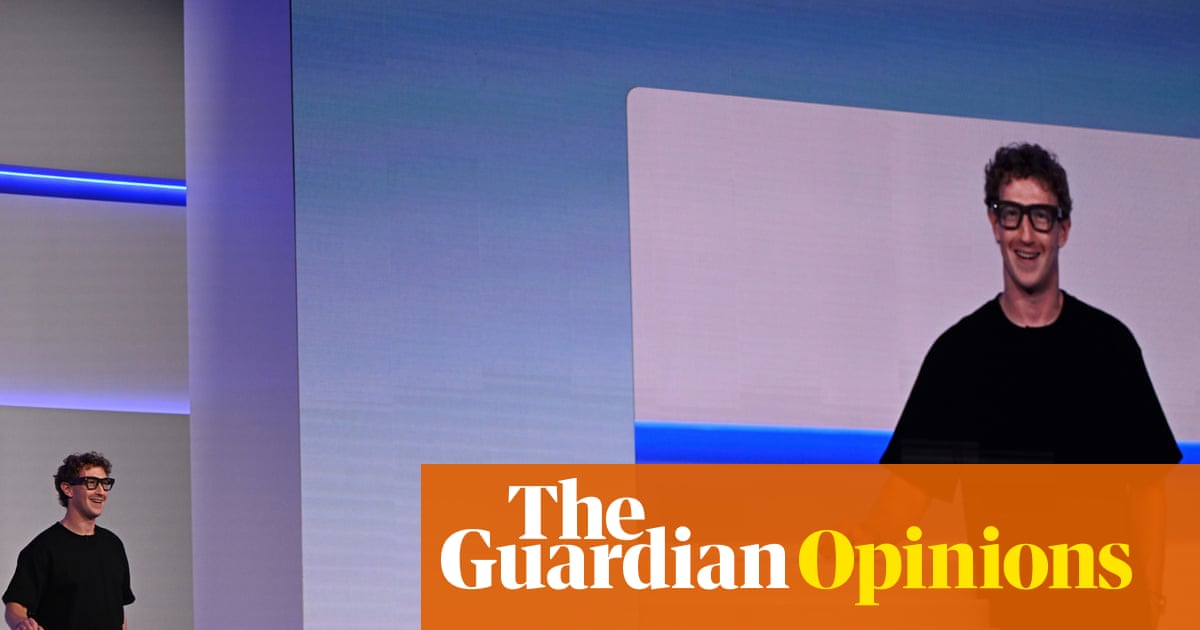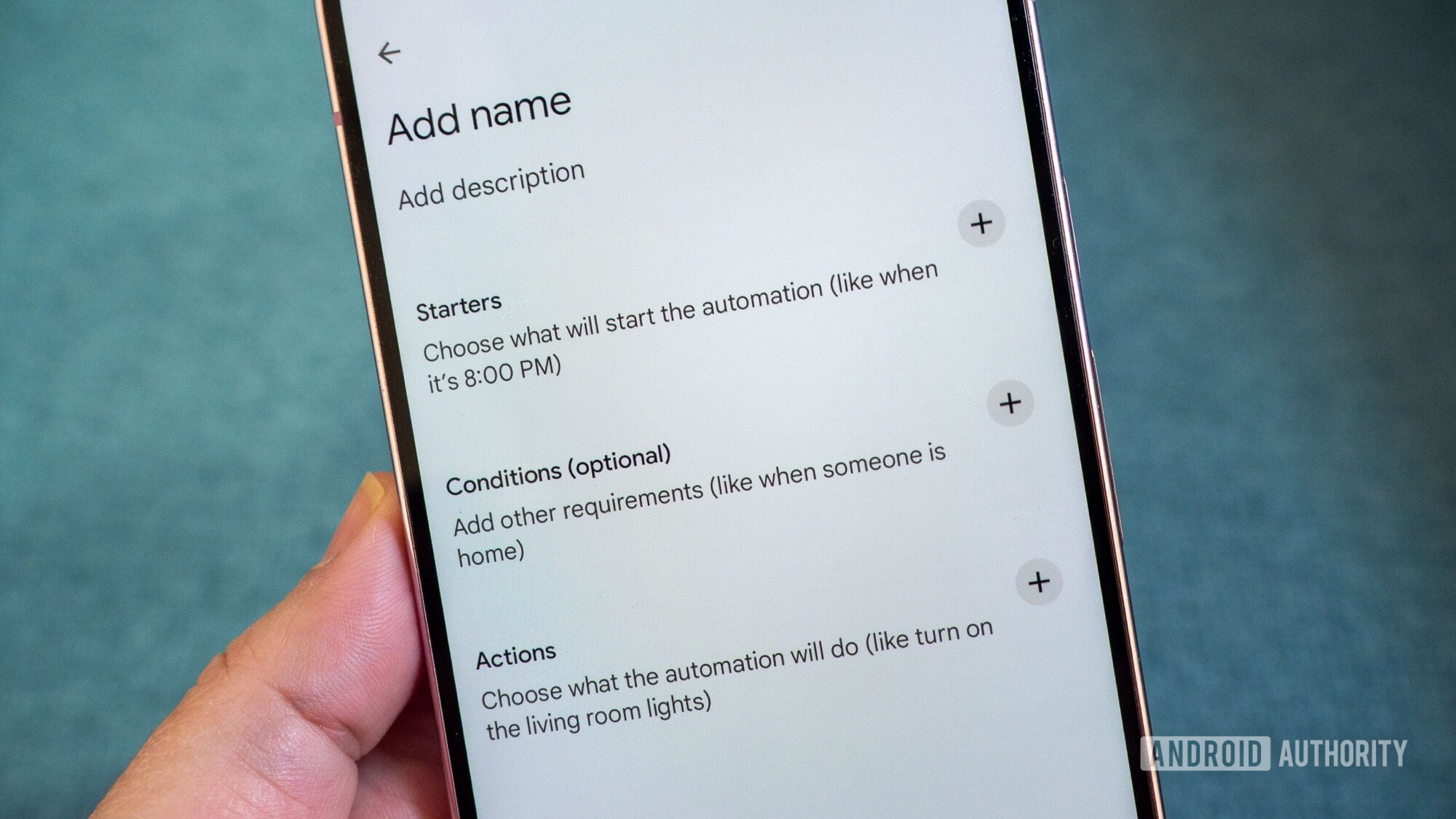As humanity inches closer to an AI apocalypse, a sliver of hope remains: the robots might not work.
Such was the case last week, as Mark Zuckerberg attempted to demonstrate his company’s new AI-enabled smart glasses. “I don’t know what to tell you guys,” Zuckerberg told a crowd of Meta enthusiasts as he tried, and failed, for roughly the fourth time to hold a video call with his colleague via the glasses.
It was a limp follow-up to an ambitious opening to the event at Meta Connect 2025, a developers conference in Menlo Park, California, where the company is headquartered. The keynote was to feature the Ray-Ban Meta Display, the latest version of what is essentially a face-mounted iPhone – ideal for the consumer who lacks the energy to pull a device from their pocket and idolizes both Buddy Holly and the Terminator. Despite that undeniable appeal, the show was a technical mess – perhaps the perfect homage to the latest pointless iteration of digital hardware.
The show had a promising start. Viewers witnessed Zuck making his way to the stage to thumping music, performing an alarming number of fist bumps en route. The moment was presented onscreen through the camera on his glasses, so that the audience could see “Mark’s POV”. All the while, he was receiving a flurry of text messages expressing enthusiasm that was no doubt genuine: “Let’s gooo” followed by a rocketship emoji, “audience is getting hyped” with a picture of two guys looking content at best, a gif saying “It’s time.”
Finally, Zuck reached the stage, in his now signature big T-shirt and curls. He explained the company’s commitment to attractive eyewear, to the supremely ironic notion that “the technology needs to get out of the way” of human interaction, and to “taking superintelligence seriously”. Superintelligence is going to be “the most important technology of our lifetimes. AI should serve people, not just be something that sits in a data center automating large parts of society,” he said, sweetly assuming that society will exist beyond the next decade.
Things rolled along smoothly enough until it came time to actually use an AI feature. Zuck held a video call with chef Jack Mancuso, suggesting he make “maybe like a steak sauce, maybe Korean-inspired type thing”, which Mancuso admitted he had never made before, so he “could definitely use the help” of AI.
“What do I do first?” he asked the oracle.
“You’ve already combined the base ingredients,” the AI informed him wrongly, “so now grate a pear to add to the sauce.” Long silence.
“What do I do first?” Mancuso asked again.
“You’ve already combined the base ingredients, so now grate the pear and gently combine it with the base sauce,” the AI patiently reminded him.
“I think the wifi might be messed up. Sorry. Back to you, Mark.” (Certainly it was the wifi and not the AI itself.)
To his credit, Zuckerberg remained poised. “It’s all good. You know what? It’s all good,” he said. “The irony of the whole thing is that you spend years making technology, and then the wifi on the day kind of catches you.”
AI demo failures are nothing new. They are something of a tradition at Google, where last year a presenter used its Gemini tool to scan a Sabrina Carpenter concert poster listing her tour dates. “I’ll just open Gemini, take a photo, and ask: ‘Check my calendar and see if I’m free when she’s coming to San Francisco this year.’” The bot’s response was dead silence. (It finally worked on the third try, on a different device.)
This year, when Google showed off a translation feature on its own smart glasses, it failed after about 15 seconds. To be fair, just because there’s an error in a high-stakes tech presentation doesn’t mean a product won’t work, as anyone who watched a certain Tesla Cybertruck presentation will recall. When a designer threw a metal ball at the truck’s “armor glass” windows, it smashed them. That truck went on to a glorious future, earning the coveted title of “deadlier than a Ford Pinto”.
At this point in his presentation, you might assume Zuckerberg would leave nothing to chance. But when it came time to demonstrate the Ray-Ban Meta Display’s unique new wristband, he opted against using slides and decided to try it live.
The wristband is what he called a “neural interface” – in a genuinely remarkable feat of technology, it allows you to type through minimal hand gestures, picking up on the electrical signals going through your muscles. “Sometimes you’re around other people and it’s, um, good to be able to type without anyone seeing,” Zuckerberg told the crowd. The pairing of glasses and wristband is, in short, a stalker’s dream.
At least when it works. Zuckerberg attempted to call his colleague Andrew Bosworth over and over again, the audience sitting in silence as the incoming-call music played. But the CEO was unable to pick up. “That’s too bad. I don’t know what happened,” he said after the first failed attempt. Then came another – “I’m just gonna pick that up with my neural band,” he said with a straight face – but again, he couldn’t do it, as the “missed video call” alerts stacked up on the onstage display, still showing “Mark’s POV”.
“I don’t know what to tell you guys, alright, but we’re gonna have Boz come out here and we’re just gonna go to the next thing that I wanted to show and hope that will work.” A sign at the back of the room, visible onscreen, read: “Live demo – good luck”.
If it was all an exercise in humanizing Zuckerberg, it worked: it was easy to pity the boy wonder, 41, as he fidgeted with the controls and did his best to smile through it all.
But the event as a whole felt like an out-of-touch millennial nightmare, a surreal relic of early 2000s optimism that only a cloistered Silicon Valley billionaire could embrace. The fanfare was reminiscent of Steve Jobs’ unveiling of the iPhone in 2007, with two big differences: back then, the US wasn’t collapsing offstage – at least not so obviously – and meanwhile, it was abundantly clear why a person might actually desire the device being announced. It was the internet! In your pocket! When could we get our hands on this marvel of human ingenuity?
This event – and much of the AI push, as generative tools are crowbarred into hardware and software that appeared to work fine without it – wants to harness the same energy without a remotely comparable product.
To a layperson, at least, it seems that consumer technology has long since entered an era of solutions in search of problems – particularly troubling at a time when the world is facing so many genuinely intractable crises. As entertaining as it is to watch our tech overlords flounder on stage, it raises bigger questions, such as: who exactly asked for this, beyond the billionaires cashing in? And: can we just not?






